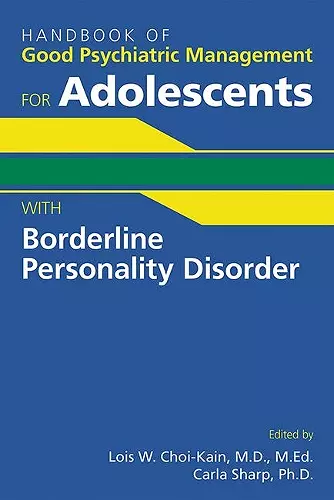Handbook of Good Psychiatric Management for Adolescents With Borderline Personality Disorder
Carla Sharp editor Lois W Choi-Kain editor
Format:Paperback
Publisher:American Psychiatric Association Publishing
Published:7th Aug '21
Should be back in stock very soon

Somewhere between 11% and 22% of adolescents seeking mental health care in outpatient clinics—and between 33% and 49% of those in inpatient units—meet the diagnostic criteria for borderline personality disorder (BPD). Despite its high prevalence, however, and the high social and economic costs that it entails, BPD remains underdiagnosed, and sufficient training regarding its fundamentals and clinical management is largely unavailable for mental health professionals treating adolescents.
It is precisely these essential guidelines that clinicians will find in the Handbook of Good Psychiatric Management for Adolescents With Borderline Personality Disorder. Adapted from Dr. John Gunderson's good psychiatric management (GPM), a resource-efficient generalist treatment for adults with BPD, this manual uses GPM for adolescents (GPM-A) to demystify BPD in young people, describing common problems that arise during each phase or aspect of treatment, from patient rejection of diagnosis and conflicts among clinicians providing care to nonadherence to medications and concerns about stigma.
Case vignettes that feature key decision points propose alternative interventions and demonstrate how to apply the book's concepts in a variety of settings. Additionally, speech bubbles throughout the handbook offer suggestions for how to phrase explanations and interventions to communicate effectively with adolescent patients at an appropriate level.
Although the pragmatic GPM-A principles outlined in this book are based on real-world experience and bolstered by scientific evidence, they are not intended to be an end point for treatment. They are, rather, a road map to provide "good enough" care even in the absence of specialized treatments, and clinicians are encouraged to adjust the lessons as needed for their practice.
The education provided in the handbook is meant to be shared with patients, their families, schools, clinical teams, and trainees as a resource for motivation in persevering with the difficult but worthwhile investments in treatment.
ISBN: 9781615373932
Dimensions: 229mm x 152mm x 14mm
Weight: 449g
330 pages